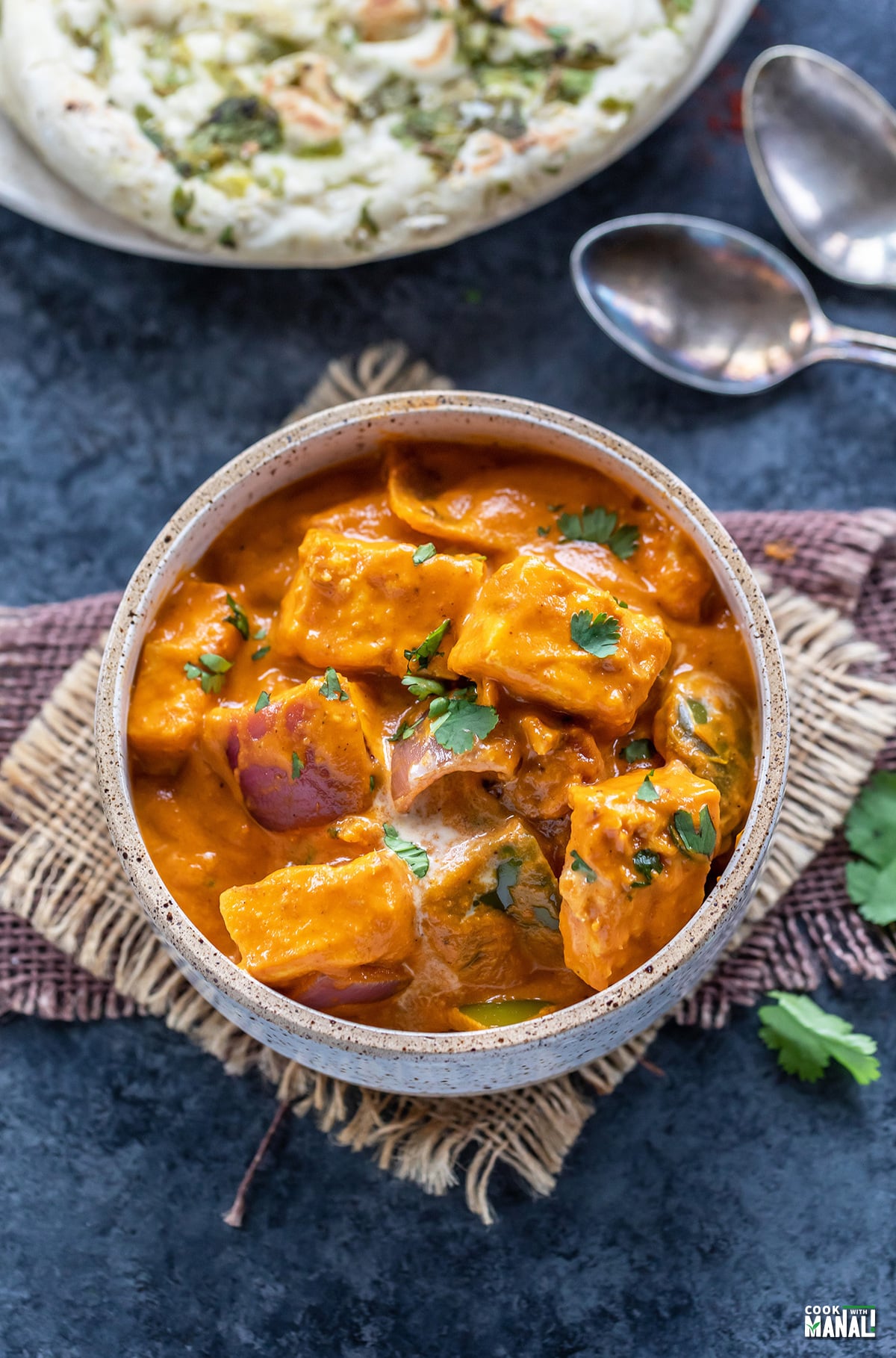
Introduction
In the realm of Indian cuisine, few dishes boast the widespread adoration and timeless appeal quite like Paneer Butter Masala. This creamy, rich dish is a quintessential part of North Indian cuisine, beloved by food enthusiasts worldwide. Let’s delve into the tantalizing world of Paneer Butter Masala, exploring its origins, ingredients, cooking process, and why it continues to captivate palates across the globe.
Origins of Paneer Butter Masala
To understand the allure of Paneer Butter Masala, one must delve into its fascinating origins. This iconic dish traces its roots to the bustling streets of Punjab, India, where it emerged as a culinary innovation in the mid-20th century. Inspired by the rich traditions of Mughlai cuisine and the vibrant flavors of North India, Paneer Butter Masala quickly gained popularity for its velvety texture and harmonious blend of spices.
Key Ingredients and Flavor Profile
At the heart of Paneer Butter Masala lies a harmonious marriage of key ingredients that contribute to its distinct flavor profile. Paneer, a fresh cheese made by curdling milk with a sour agent, serves as the star of the dish, offering a delicate yet creamy texture. The luscious gravy, prepared with tomatoes, onions, cream, and an array of aromatic spices such as cumin, coriander, and garam masala, imparts depth and complexity to every spoonful.
The Art of Preparation
Crafting the perfect Paneer Butter Masala is both a science and an art. The process begins with sautéing onions, garlic, and ginger in a generous amount of butter until they turn golden brown, releasing their tantalizing aroma. Next, ripe tomatoes are added to the mix, simmered until they soften and form the base of the luscious gravy. Finally, cubes of fresh paneer are gently folded into the velvety sauce, allowing them to soak up the flavors and attain a melt-in-your-mouth consistency.
Variations and Regional Influences
While the classic Paneer Butter Masala recipe remains timeless, regional variations and personal touches abound, reflecting the diverse culinary landscape of India. In some regions, chefs may add a hint of sweetness with the inclusion of honey or sugar, while others may opt for a fiery kick by incorporating extra chili peppers or chili powder. Additionally, regional influences from Kashmiri cuisine to South Indian flavors have inspired unique interpretations of this beloved dish, further enriching its culinary legacy.
Pairing and Serving Suggestions
Paneer Butter Masala’s versatility extends beyond its delectable taste to its compatibility with a wide range of accompaniments. Whether served with fluffy naan bread, fragrant basmati rice, or crispy papadums, this dish never fails to impress. For a complete Indian dining experience, complement Paneer Butter Masala with flavorful side dishes such as vegetable biryani, dal tadka, or a refreshing cucumber raita.
Celebrating a Culinary Icon
In essence, Paneer Butter Masala transcends the boundaries of mere food to embody a cultural phenomenon, a culinary icon that symbolizes the richness and diversity of Indian cuisine. Its velvety texture, robust flavors, and comforting warmth have earned it a place of honor on dining tables, from humble households to upscale restaurants, leaving an indelible mark on the hearts and taste buds of food enthusiasts worldwide.
Conclusion
In the realm of Indian cuisine, few dishes boast the widespread adoration and timeless appeal quite like Paneer Butter Masala. This creamy, rich dish is a quintessential part of North Indian cuisine, beloved by food enthusiasts worldwide. Let’s delve into the tantalizing world of Paneer Butter Masala, exploring its origins, ingredients, cooking process, and why it continues to captivate palates across the globe. Read more about paneer butter masala
